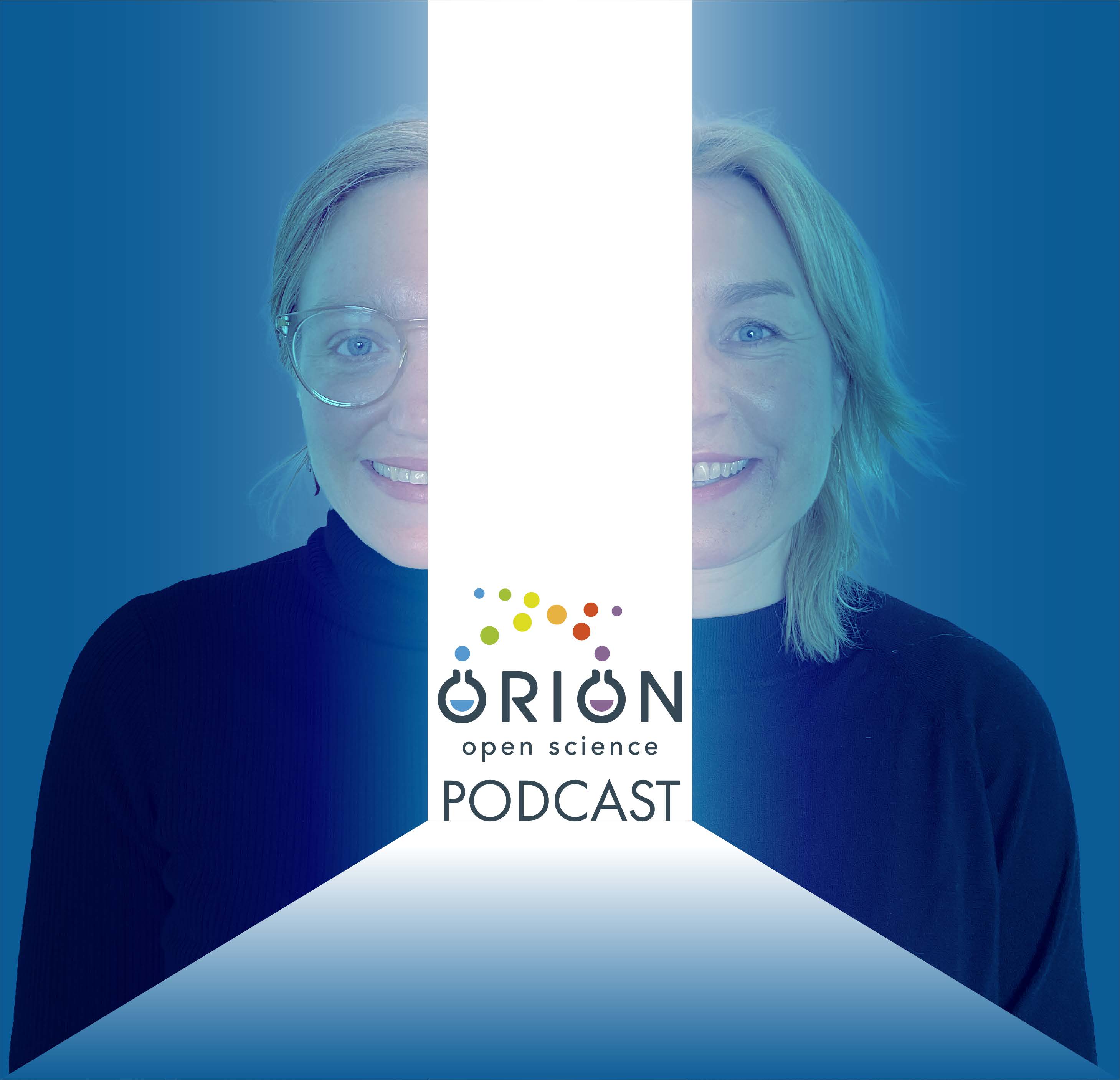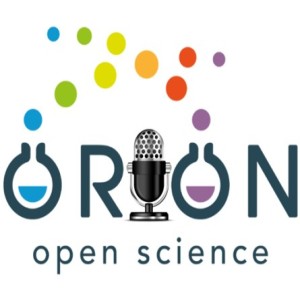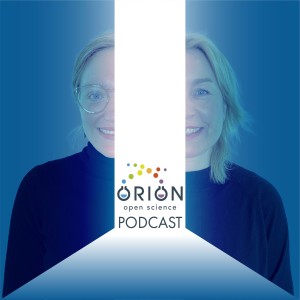
9.3K
Downloads
44
Episodes
From data sharing to citizen science and from peer review to professional development the podcasts will explore the good, the bad, and the ugly of the current scientific system, and what Open Science practices can do to improve the way we do science. Now on Season 2!
Episodes

Thursday Jul 23, 2020
Thursday Jul 23, 2020
Episode Summary:
In this episode we talk to Professor Stefano Bertozzi, editor-in-chief Rapid Reviews: COVID-19 (RR:C19). This new open access overlay journal from the MIT Press is aiming to publish expert peer reviews of new COVID-19 research which will help validate and accelerate the discovery of high impact, useful studies. We discussed how the journal will work, the role human and AI input will play, and the importance of pan-disciplinary content.
Episode Links:

Thursday Jul 09, 2020
Thursday Jul 09, 2020
Episode Summary:
The Coronavirus pandemic has led to many new initiatives to help scientists share resources and data. We talked to, Tobias Opialla and Lisa Rieble who have created a new platform called LabHive. We discussed what LabHive is and how it got started, as well as how Open Science principles and practices relate to the new normal and how communication is key.
Episode Links:
Bonus links regarding Drosten, the Teachers and Kindergarteners and the BILD:
Original tweet from Drosten:
https://twitter.com/c_drosten/status/1264934434756755456
Replies from improperly quoted reviewers:
https://twitter.com/jdoeschner/status/1264948078790029313
https://twitter.com/domliebl/status/1264935266185293826
https://twitter.com/polenz_r/status/1264946109719379970
https://twitter.com/christoph_rothe/status/1265344225979314177
https://twitter.com/christoph_rothe/status/1264930677306413058
The xkcd regarding preprints:
https://xkcd.com/2304/
Regarding renewed interest in Testing:
Drosten wanting to test schools and Kindergartens
https://www.ndr.de/nachrichten/info/39-Welche-Chancen-neue-Tests-bieten,podcastcoronavirus206.html
Press Release from Berlin Senate regarding test strategy:
https://www.berlin.de/rbmskzl/aktuelles/pressemitteilungen/2020/pressemitteilung.935676.php

Thursday Apr 23, 2020
Thursday Apr 23, 2020
Episode Summary
In this episode we cover UniStem Day, a pan European outreach event that bring stem cell research and high school students together. We talk to the organisers of UniStem Day at the Max-Delbrück-Center for Molecular Medicine, Stefanie Mahler and Dr Daniel Besser, as well as teachers and pupils who attended.
Episode Links

Wednesday Apr 01, 2020
Wednesday Apr 01, 2020
CC 0, CC BY or CC BY-NC-SA? We talked to Cable Green, the interim CEO and Director of Open Education at Creative Commons. Cable explained the rationale behind the licenses on digital work and provided us with a practical guide to how to use these. Further on, we ventured into the world of Open Education and how it is empowered by Creative Commons licensing. And yes - we did also talk about Covid-19 and how it is changing the way we think about open access and collaboration.
Episode links:
Twitter:

Thursday Mar 05, 2020
Thursday Mar 05, 2020
Episode Summary:
One of the issues that gets raised by the Open Science movement is that it has a potential conflict with innovation and commercialisation of research. To explore this topic we talked to Professor Shobita Parthasarathy about how patents actually work, how we understand the idea of science as a public good, and the challenges of inclusive innovative.
Episode Links:
Science, Technology, and Public Policy Program
Twitter: @ShobitaP
Further reading:
Shobita Parthasarathy. Building Genetic Medicine: Breast Cancer, Technology, and the Comparative Politics of Health Care. Cambridge, MA: MIT Press, 2007. (available at Amazon, MIT Press, and wherever books are sold)
Shobita Parthasarathy. Patent Politics: Life Forms, Markets, and the Public Interest in the United States and Europe. Chicago: University of Chicago Press, 2017 (available at Amazon, University of Chicago Press, and wherever books are sold)
Shobita Parthasarathy. “Use Patents to Regulate Gene Editing.” Nature. October 25, 2018.
Shobita Parthasarathy. “An early expression of democracy, the US patent system is out of step with today’s citizens.” [Updated]. The Conversation. July 4 2018. (reprinted in Business Insider, Associated Press, among other outlets)
Shobita Parthasarathy. “How to make sure we all benefit when nonprofits patent technologies like CRISPR.” The Conversation. July 19, 2017.

Thursday Feb 20, 2020
A New Normal: How the Center for Open Science is Changing How Science is Done
Thursday Feb 20, 2020
Thursday Feb 20, 2020
Episode Summary:
In this episode we talk to Dr Brian Nosek about the work of the Center for Open Science. We discuss how to shift expectations of what is the norm is science, preregistration, networks, and the impact of a digital society on scientific practice.
Episode Links:

Thursday Feb 06, 2020
Together Works Better: How Sage Bionetworks Use A Collective Approach To Data
Thursday Feb 06, 2020
Thursday Feb 06, 2020
Episode Summary:
This week we talk to Lara Mangravite, President of Sage Bionetworks 'a nonprofit biomedical research and technology development organization' that facilitates research data sharing in biomedicine, as well as promoting community research and citizen science projects. We discussed the advantages and challenges of dating sharing and what tools Sage BioNetworks are offering*.
Episode Links (provided by Sage Bionetworks):
Synapse is a set of web services and tools created by Sage Bionetworks that make it easier for researchers to aggregate, organize, analyze, and share scientific data, code, and insights. mPower is a free, 2 year digital health research study developed with the goal of understanding the progression of Parkinson’s Disease at the level of the individual. Elements of Informed Consent is a free, downloadable toolkit for researchers that includes basic information and best practices for developing an effective informed consent process. The Open Drug Discovery Center for AD (Open AD) was established to develop and openly distribute experimental tools for use in the evaluation of a diverse set of novel AD targets.
Other Links:
Center for Open Science , NIH All of Us Research Program, Structural Genomics Consortium
*"The thoughts and views expressed in this interview are Lara Mangravite's and not those of Sage Bionetworks or any affiliated organizations."

Thursday Jan 23, 2020
Hindsight is 2020: Reviewing How the ORION Project Impacted Open Science
Thursday Jan 23, 2020
Thursday Jan 23, 2020
Episode Summary:
Season 2 is here! We start by looking back at the last year, and talking for the first time about the Open Science project that we are part of ORION. In particular, we consider the aim and impact of Open Science training and interview two participants: Malte Schäfer from TU Braunschweig and Dr Deirdre Winrow from University College Dublin, from our workshop and our MOOC.
Links:
Quotes:
"He radicalised me"
"It gives them space to reflect on Open Science"
"The system of science has changed"

Thursday Dec 12, 2019
Thursday Dec 12, 2019
Episode Summary:
In the last episode of 2019 we talk to Professor Dan Quintana from the University of Oslo about the advantages of sharing preprints and ideas online, fears about getting scooped, and lessons he has learnt about Twitter and time management.
Episode Links:
Episode Quotes:
"The great thing about social media is it is a great way to organise a lot of people who are like-minded"

Thursday Nov 28, 2019
Thursday Nov 28, 2019
Episode Summary:
In this week's episode we report on a recent symposium: Doing Good: Scientific Practice Under Review. There are interviews and impressions from the organisers and attendees who discuss why Open Science is good science, what the current state of play is, and what researchers need in order to make positive changes for the better.
Episode Links:
Episode Quotes:
"Are we doing good? That's the question we are asking in the symposium and asking from different perspectives".
